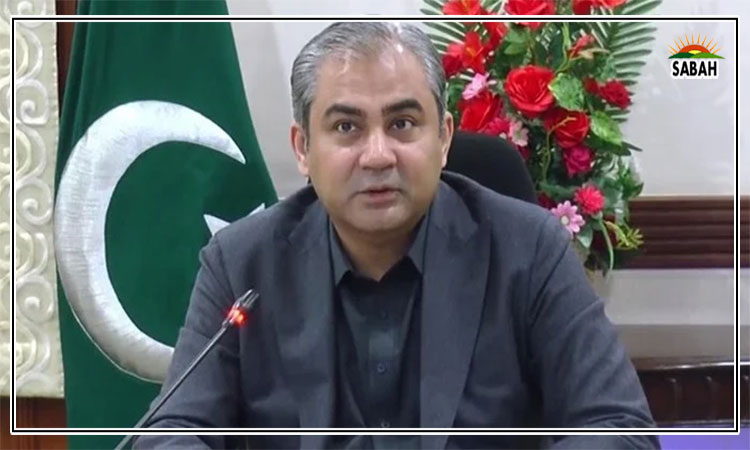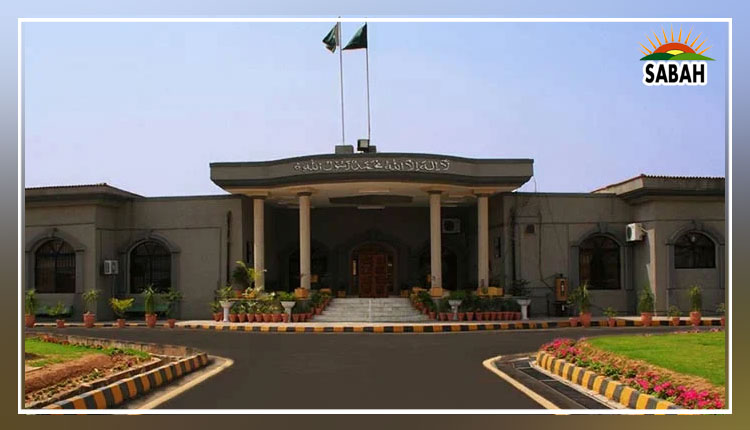CJ IHC Athar Minallah orders forming commission to probe harassment, disappearances of Baloch students
ISLAMABAD, April 28 (SABAH): The Islamabad High Court (IHC) has directed authorities to form a commission to investigate the racial profiling and disappearances of Baloch students in the country.
The directions came during a hearing into the case of harassment, filed by students of the Quaid-e-Azam University in Islamabad. Chief Justice of the Islamabad High Court Justice Athar Minallah said that the courts could not turn a blind eye to the human rights violations in Pakistan.
He ordered that a commission be formed to probe the harassment and disappearances of Baloch students. The chief justice also asked for suggestions on who could head the commission, for which lawyer Hina Jilani and politician Afrasiab Khattak’s names were proposed, amongst others.
During the proceedings, the lawyer of the students, Imaan Zainab Mazari Hazir, told the Court that the Baloch students had met the president twice and both times the president had assured the students to look into their issues.
Still, Mazari said that a Baloch student was picked up from Karachi recently and one from Lahore on Wednesday.
Seems like the government is not taking the concerns of the students seriously, the lawyer told the court. She further suggested that the Higher Education Commission (HEC) should send notices to all universities in Pakistan instructing them to stop the harassment of Baloch students.
Justice Athar Minallah noted that this was a real issue in the country, but governments and political leaders ignored it. He then asked who was responsible for this, to which Mazari replied that the responsibility lies with the chief executive and the relevant agencies.
The chief justice observed that if the racial profiling of Baloch students continues then the government should shut down the ministry of human rights. “Don’t say that the state is weak,” he added.
The deputy attorney general, who was also present in the court, argued that there is a new government in office and he will have to take directions from them on the issue. He explained that Prime Minister Shehbaz Sharif had also recently visited Balochistan.
To which the chief justice asked if the cabinet did not know what was happening in the country?
“If there is a law and order situation, why are children being affected by it?” Justice Minallah inquired.
The chief justice further directed the secretary of the interior to visit the Baloch students and set up a mechanism to deal with their complaints.
Deputy Attorney General Syed Mohammad Tayyab Shah requested the court for time so he could ask the new government for instructions.
“You can write [to the government] that the state is weak,” Justice Minallah replied, asking how it could ignore human rights violations. “This is the job of the federal government. This is the job of the human rights ministry.”
The deputy attorney general told the court the prime minister had visited Balochistan recently.
“This is the federal capital. Their (Baloch students) petitions are being heard since February,” the chief justice responded.
“These students are the future. Should the courts close their eyes to these human rights violations?” he asked. “Does the cabinet not know what is happening in the country? Weren’t those who are in the cabinet [now] going to them yesterday? Don’t they know?”
It is the job of the political leadership in a democratic society to find a solution, the chief justice observed. The court is expected to issue a written order later.












